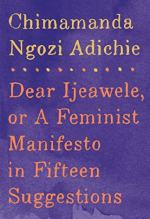|
This section contains 967 words (approx. 3 pages at 400 words per page) |

|
Summary
The author’s thirteenth suggestion calls for Ijeawele to talk to her daughter about romance and love. Specifically, the author hopes that Ijeawele will teach her daughter that love is not only about giving but also about taking. The author even provides her own definition of love as “being greatly valued by another human being and greatly valuing another human being” (56). According to the author, Ijeawele should also teach her daughter that relationships are about equality and choice, so that any person can propose and any person can pay.
The fourteenth suggestion cautions Ijeawele not to transform oppression into “saintliness” (59). As the author points out, women do not—and should not—need to be “good and saintly” (60) in order to secure their property rights. At root, the author suggests that “women are as men are” (60); they are neither worse nor better than men...
(read more from the Suggestions 13-15 Summary)
|
This section contains 967 words (approx. 3 pages at 400 words per page) |

|




